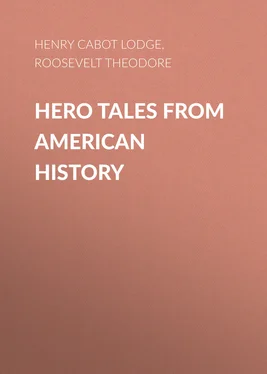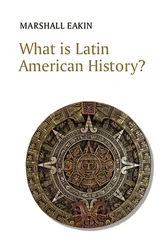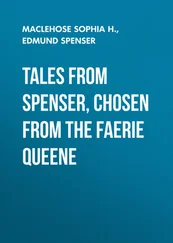Henry Cabot Lodge - Hero Tales from American History
Здесь есть возможность читать онлайн «Henry Cabot Lodge - Hero Tales from American History» — ознакомительный отрывок электронной книги совершенно бесплатно, а после прочтения отрывка купить полную версию. В некоторых случаях можно слушать аудио, скачать через торрент в формате fb2 и присутствует краткое содержание. Жанр: foreign_humor, Юмористические книги, История, foreign_edu, foreign_antique, foreign_prose, на английском языке. Описание произведения, (предисловие) а так же отзывы посетителей доступны на портале библиотеки ЛибКат.
- Название:Hero Tales from American History
- Автор:
- Жанр:
- Год:неизвестен
- ISBN:нет данных
- Рейтинг книги:3 / 5. Голосов: 1
-
Избранное:Добавить в избранное
- Отзывы:
-
Ваша оценка:
- 60
- 1
- 2
- 3
- 4
- 5
Hero Tales from American History: краткое содержание, описание и аннотация
Предлагаем к чтению аннотацию, описание, краткое содержание или предисловие (зависит от того, что написал сам автор книги «Hero Tales from American History»). Если вы не нашли необходимую информацию о книге — напишите в комментариях, мы постараемся отыскать её.
Hero Tales from American History — читать онлайн ознакомительный отрывок
Ниже представлен текст книги, разбитый по страницам. Система сохранения места последней прочитанной страницы, позволяет с удобством читать онлайн бесплатно книгу «Hero Tales from American History», без необходимости каждый раз заново искать на чём Вы остановились. Поставьте закладку, и сможете в любой момент перейти на страницу, на которой закончили чтение.
Интервал:
Закладка:
But whenever Boone went into the woods after game, he had perpetually to keep watch lest he himself might be hunted in turn. He never lay in wait at a game-lick, save with ears strained to hear the approach of some crawling red foe. He never crept up to a turkey he heard calling, without exercising the utmost care to see that it was not an Indian; for one of the favorite devices of the Indians was to imitate the turkey call, and thus allure within range some inexperienced hunter.
Besides this warfare, which went on in the midst of his usual vocations, Boone frequently took the field on set expeditions against the savages. Once when he and a party of other men were making salt at a lick, they were surprised and carried off by the Indians. The old hunter was a prisoner with them for some months, but finally made his escape and came home through the trackless woods as straight as the wild pigeon flies. He was ever on the watch to ward off the Indian inroads, and to follow the warparties, and try to rescue the prisoners. Once his own daughter, and two other girls who were with her, were carried off by a band of Indians. Boone raised some friends and followed the trail steadily for two days and a night; then they came to where the Indians had killed a buffalo calf and were camped around it. Firing from a little distance, the whites shot two of the Indians, and, rushing in, rescued the girls. On another occasion, when Boone had gone to visit a salt-lick with his brother, the Indians ambushed them and shot the latter. Boone himself escaped, but the Indians followed him for three miles by the aid of a tracking dog, until Boone turned, shot the dog, and then eluded his pursuers. In company with Simon Kenton and many other noted hunters and wilderness warriors, he once and again took part in expeditions into the Indian country, where they killed the braves and drove off the horses. Twice bands of Indians, accompanied by French, Tory, and British partizans from Detroit, bearing the flag of Great Britain, attacked Boonesboroug. In each case Boone and his fellow-settlers beat them off with loss. At the fatal battle of the Blue Licks, in which two hundred of the best riflemen of Kentucky were beaten with terrible slaughter by a great force of Indians from the lakes, Boone commanded the left wing. Leading his men, rifle in hand, he pushed back and overthrew the force against him; but meanwhile the Indians destroyed the right wing and center, and got round in his rear, so that there was nothing left for Boone's men except to flee with all possible speed.
As Kentucky became settled, Boone grew restless and ill at ease. He loved the wilderness; he loved the great forests and the great prairie-like glades, and the life in the little lonely cabin, where from the door he could see the deer come out into the clearing at nightfall. The neighborhood of his own kind made him feel cramped and ill at ease. So he moved ever westward with the frontier; and as Kentucky filled up he crossed the Mississippi and settled on the borders of the prairie country of Missouri, where the Spaniards, who ruled the territory, made him an alcalde, or judge. He lived to a great age, and died out on the border, a backwoods hunter to the last.
GEORGE ROGERS CLARK AND THE CONQUEST OF THE NORTHWEST
Have the elder races halted?
Do they droop and end their lesson, wearied over there beyond the seas?
We take up the task eternal, and the burden and the lesson,
Pioneers! O Pioneers!
All the past we leave behind,
We debouch upon a newer, mightier world, varied world;
Fresh and strong the world we seize, world of labor and the march,
Pioneers! O Pioneers!
We detachments steady throwing,
Down the edges, through the passes, up the mountains steep,
Conquering, holding, daring, venturing, as we go the unknown ways,
Pioneers! O Pioneers!
The sachem blowing the smoke first towards the sun and then towards the earth,
The drama of the scalp dance enacted with painted faces and guttural exclamations,
The setting out of the war-party, the long and stealthy march,
The single file, the swinging hatchets, the surprise and slaughter of enemies.
In 1776, when independence was declared, the United States included only the thirteen original States on the seaboard. With the exception of a few hunters there were no white men west of the Alleghany Mountains, and there was not even an American hunter in the great country out of which we have since made the States of Illinois, Indiana, Ohio, Michigan, and Wisconsin. All this region north of the Ohio River then formed apart of the Province of Quebec. It was a wilderness of forests and prairies, teeming with game, and inhabited by many warlike tribes of Indians.
Here and there through it were dotted quaint little towns of French Creoles, the most important being Detroit, Vincennes on the Wabash, and Kaskaskia and Kahokia on the Illinois. These French villages were ruled by British officers commanding small bodies of regular soldiers or Tory rangers and Creole partizans. The towns were completely in the power of the British government; none of the American States had actual possession of a foot of property in the Northwestern Territory.
The Northwest was acquired in the midst of the Revolution only by armed conquest, and if it had not been so acquired, it would have remained a part of the British Dominion of Canada.
The man to whom this conquest was clue was a famous backwoods leader, a mighty hunter, a noted Indian-fighter, George Rogers Clark. He was a very strong man, with light hair and blue eyes. He was of good Virginian family. Early in his youth, he embarked on the adventurous career of a backwoods surveyor, exactly as Washington and so many other young Virginians of spirit did at that period. He traveled out to Kentucky soon after it was founded by Boone, and lived there for a year, either at the stations or camping by him self in the woods, surveying, hunting, and making war against the Indians like any other settler; but all the time his mind was bent on vaster schemes than were dreamed of by the men around him. He had his spies out in the Northwestern Territory, and became convinced that with a small force of resolute backwoodsmen he could conquer it for the United States. When he went back to Virginia, Governor Patrick Henry entered heartily into Clark's schemes and gave him authority to fit out a force for his purpose.
In 1778, after encountering endless difficulties and delays, he finally raised a hundred and fifty backwoods riflemen. In May they started down the Ohio in flatboats to undertake the allotted task. They drifted and rowed downstream to the Falls of the Ohio, where Clark founded a log hamlet, which has since become the great city of Louisville.
Here he halted for some days and was joined by fifty or sixty volunteers; but a number of the men deserted, and when, after an eclipse of the sun, Clark again pushed off to go down with the current, his force was but about one hundred and sixty riflemen. All, however, were men on whom he could depend—men well used to frontier warfare. They were tall, stalwart backwoodsmen, clad in the hunting-shirt and leggings that formed the national dress of their kind, and armed with the distinctive weapon of the backwoods, the long-barreled, small-bore rifle.
Before reaching the Mississippi the little flotilla landed, and Clark led his men northward against the Illinois towns. In one of them, Kaskaskia, dwelt the British commander of the entire district up to Detroit. The small garrison and the Creole militia taken together outnumbered Clark's force, and they were in close alliance with the Indians roundabout. Clark was anxious to take the town by surprise and avoid bloodshed, as he believed he could win over the Creoles to the American side. Marching cautiously by night and generally hiding by day, he came to the outskirts of the little village on the evening of July 4, and lay in the woods near by until after nightfall.
Читать дальшеИнтервал:
Закладка:
Похожие книги на «Hero Tales from American History»
Представляем Вашему вниманию похожие книги на «Hero Tales from American History» списком для выбора. Мы отобрали схожую по названию и смыслу литературу в надежде предоставить читателям больше вариантов отыскать новые, интересные, ещё непрочитанные произведения.
Обсуждение, отзывы о книге «Hero Tales from American History» и просто собственные мнения читателей. Оставьте ваши комментарии, напишите, что Вы думаете о произведении, его смысле или главных героях. Укажите что конкретно понравилось, а что нет, и почему Вы так считаете.












